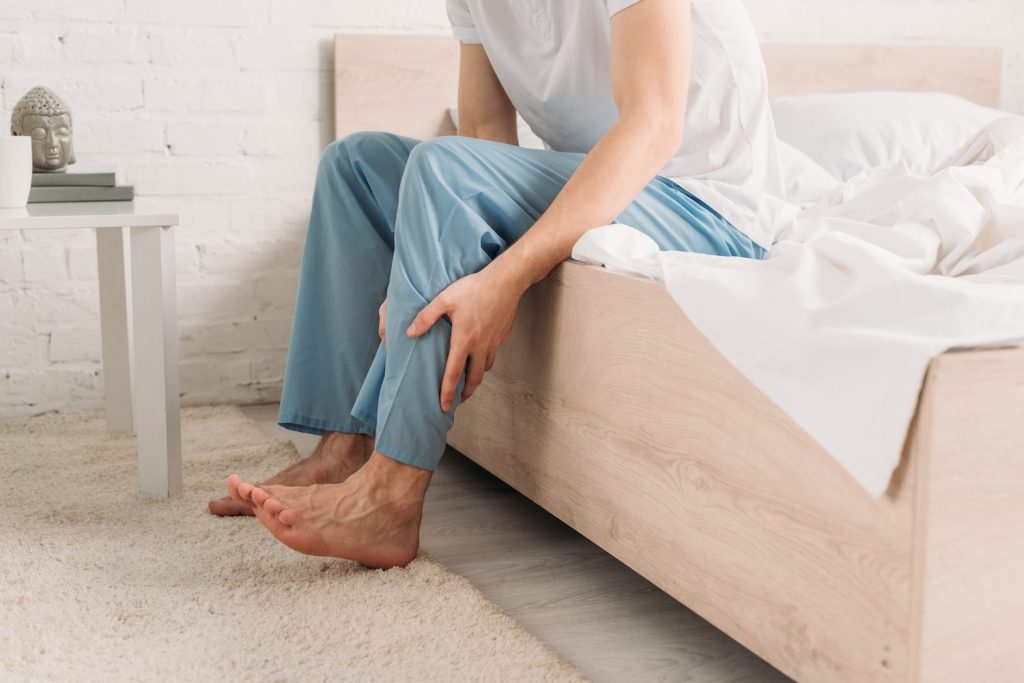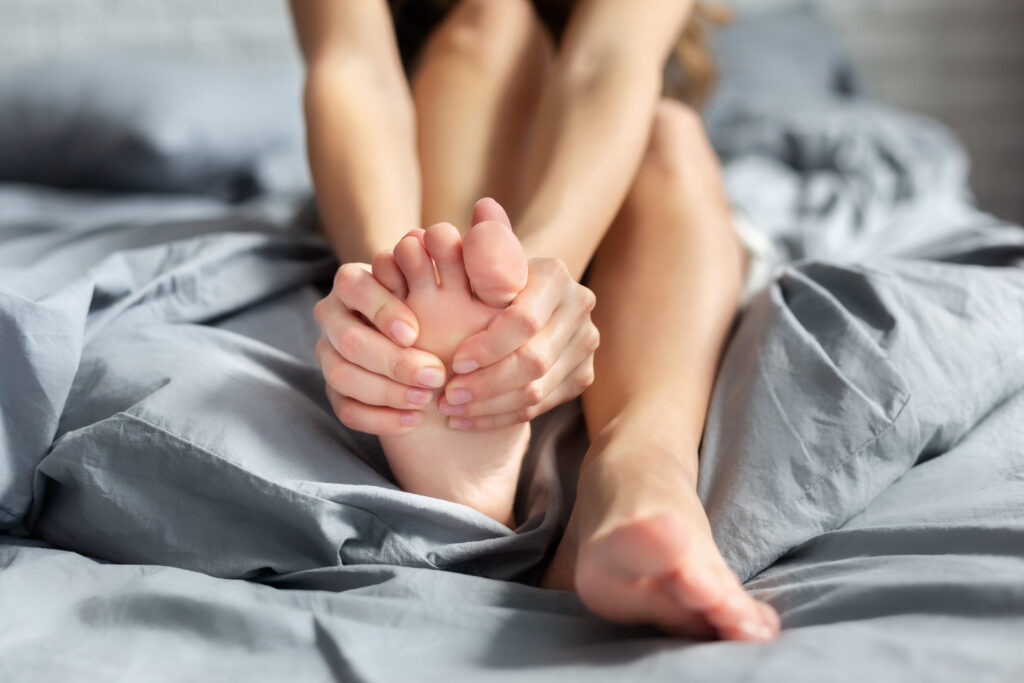You’re fast asleep, dreaming away, when suddenly—ouch!—a sharp pain jolts you awake. Your leg has locked up in a painful cramp, and all you can think is: “How do I make this stop?” If that sounds familiar, you’re definitely not the only one. But what causes these sudden nighttime cramps, and more importantly—how do you stop them fast?
When a Cramp Could Be Telling You Something More
Did you know that frequent leg cramps during the night might actually be a warning sign? While most cramps are harmless, they can sometimes point to an underlying health issue. A few common triggers include:
- Low levels of key minerals like magnesium, potassium, or calcium
- Not drinking enough water
- Poor blood circulation
If these cramps are happening often, don’t just brush them off—it’s worth seeing a doctor. Getting checked can help rule out more serious conditions like diabetes, nerve disorders, or thyroid problems.
Pro tip: Before your appointment, jot down when the cramps happen, how long they last, and how painful they are. This info can help your doctor get a clearer picture.
Common Mistakes People Make With Nighttime Cramps (And What to Do Instead)

Ever just laid there, hoping a cramp would go away on its own? That might actually make things worse. Here are a few missteps to avoid—and some better options:
1. Mistake: Doing nothing and staying still
It might feel instinctive to freeze, but that can actually make the cramp last longer.
What to do instead: Try gently stretching the muscle.
- Got a calf cramp? Pull your toes toward your knee—this helps loosen the muscle.
2. Mistake: Forgetting to stay hydrated

Dehydration is a major cause of muscle cramps, but many people don’t drink enough water—especially during colder months.
Solution: Sip water throughout the day, even if you’re not thirsty. Staying hydrated helps prevent nighttime muscle spasms.
3. Mistake: Overlooking mineral deficiencies
Missing out on important nutrients like magnesium, potassium, or calcium can increase the risk of cramping—especially if your diet is off balance.
Continuer la recette à la page suivante
